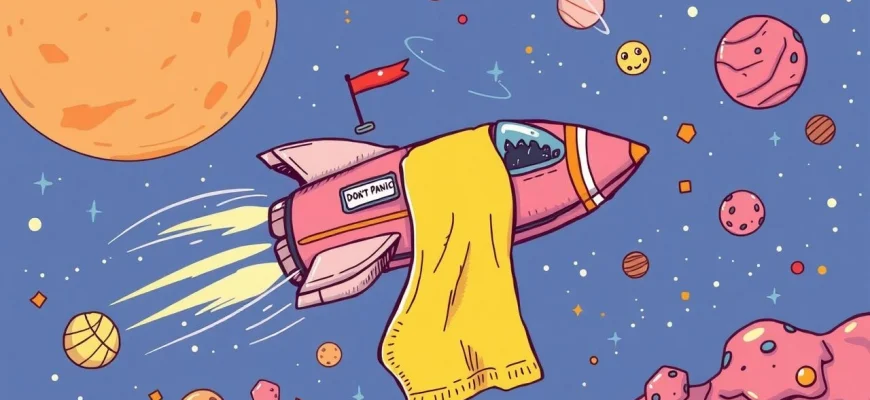If you're a fan of 'The Hitchhiker's Guide to the Galaxy' (1981) and its unique blend of absurd humor, sci-fi adventure, and philosophical musings, you're in for a treat. This article explores 10 movies and TV shows that capture the same quirky charm, witty dialogue, and interstellar escapades. Whether you're looking for more intergalactic misadventures or just love the idea of a sentient towel, these picks will keep you entertained and pondering the meaning of life, the universe, and everything.
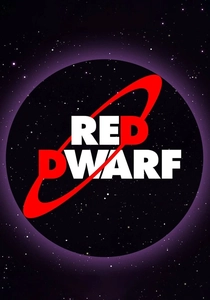
Red Dwarf (1988)
Description: Similar to 'The Hitchhiker's Guide to the Galaxy', 'Red Dwarf' combines science fiction with British humor, featuring a dysfunctional crew on a spaceship. Both explore absurdity in space travel and existential themes with a comedic twist.
Fact: 'Red Dwarf' was originally a BBC radio series before becoming a TV show. The show's creator, Doug Naylor, was inspired by 'The Hitchhiker's Guide to the Galaxy'. The character Kryten was originally intended to appear in only one episode but became a series regular.
 Watch Now
Watch Now 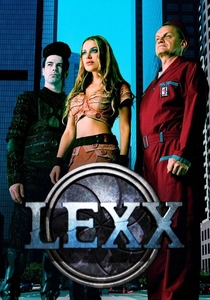
Lexx (1997)
Description: 'Lexx' is similar to 'The Hitchhiker's Guide to the Galaxy' in its offbeat, often surreal take on space travel. Both feature a mismatched crew and explore themes of destiny, free will, and the absurdity of existence.
Fact: 'Lexx' was a Canadian-German co-production. The show's tone ranges from darkly comedic to outright bizarre. The Lexx itself is a living ship, much like the Heart of Gold's sentient technology.
 Watch Now
Watch Now 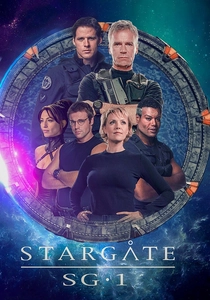
Stargate SG-1 (1997)
Description: While more serious, 'Stargate SG-1' shares 'The Hitchhiker's Guide to the Galaxy's' theme of exploring strange new worlds. Both involve a team navigating alien cultures and technologies, though 'Stargate' leans more towards action and military sci-fi.
Fact: 'Stargate SG-1' is based on the 1994 film 'Stargate'. The show ran for 10 seasons, making it one of the longest-running sci-fi series. Richard Dean Anderson, who plays O'Neill, was a fan favorite for his humor, akin to Arthur Dent's relatability.
 Watch Now
Watch Now 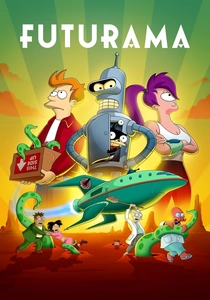
Futurama (1999)
Description: Like 'The Hitchhiker's Guide to the Galaxy', 'Futurama' is a sci-fi comedy that satirizes future societies and space exploration. Both feature a mix of absurd humor, clever wordplay, and philosophical undertones.
Fact: 'Futurama' was created by Matt Groening, also the creator of 'The Simpsons'. The show's writers included several PhD holders, ensuring scientific accuracy in jokes. The character Bender was partially inspired by Marvin the Paranoid Android from 'Hitchhiker's'.
 Watch Now
Watch Now 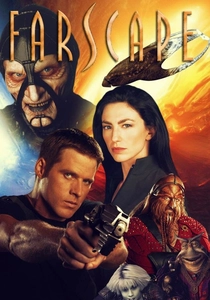
Farscape (1999)
Description: 'Farscape' aligns with 'The Hitchhiker's Guide to the Galaxy' in its quirky, character-driven space opera. Both feature a human thrust into bizarre alien societies, with a mix of humor, drama, and surrealism.
Fact: 'Farscape' used puppetry from Jim Henson's Creature Shop. The show was canceled after four seasons but concluded with a miniseries due to fan demand. The character Rygel was a puppet, adding to the show's unique aesthetic.
 Watch Now
Watch Now 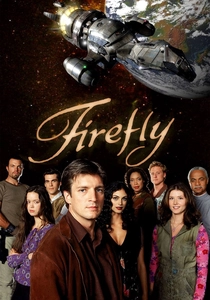
Firefly (2002)
Description: 'Firefly' shares with 'The Hitchhiker's Guide to the Galaxy' a focus on a ragtag crew navigating a vast, often indifferent universe. Both blend humor with deeper themes of survival and morality in space.
Fact: 'Firefly' was canceled after one season but gained a cult following. The show's mix of Western and sci-fi genres was unique. Joss Whedon, the creator, also made 'Buffy the Vampire Slayer'.
 Watch Now
Watch Now 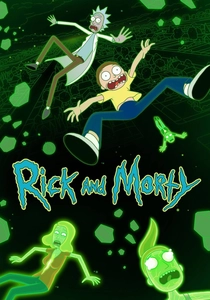
Rick and Morty (2013)
Description: 'Rick and Morty' echoes 'The Hitchhiker's Guide to the Galaxy' in its dark humor, existential themes, and chaotic space adventures. Both deconstruct sci-fi tropes while delivering profound and absurd narratives.
Fact: The show was inspired by 'Back to the Future' but evolved into something much darker. Justin Roiland, the co-creator, voices both Rick and Morty. The show's interdimensional cable episodes are reminiscent of 'Hitchhiker's' absurdity.
 Watch Now
Watch Now 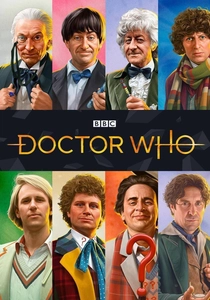
Doctor Who (1963)
Description: 'Doctor Who' shares with 'The Hitchhiker's Guide to the Galaxy' a British sensibility, whimsical approach to sci-fi, and themes of exploration and absurdity. Both feature eccentric protagonists navigating bizarre universes.
Fact: 'Doctor Who' is the longest-running sci-fi TV show in history. Douglas Adams, author of 'Hitchhiker's', was a script editor for 'Doctor Who'. The TARDIS is famously bigger on the inside, a concept akin to the Infinite Improbability Drive.
 Watch Now
Watch Now 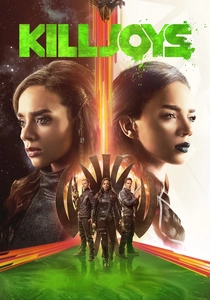
Killjoys (2015)
Description: 'Killjoys' mirrors 'The Hitchhiker's Guide to the Galaxy' in its blend of action, humor, and space adventure. Both feature protagonists who are somewhat reluctant heroes in a chaotic universe.
Fact: 'Killjoys' was created by Michelle Lovretta, who also created 'Lost Girl'. The show is set in a system called the Quad, ruled by a powerful corporation. The dynamic between the trio of bounty hunters is central to the show's appeal.
 Watch Now
Watch Now 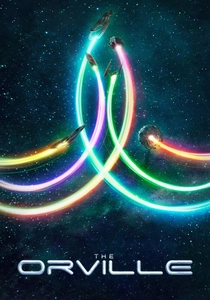
The Orville (2017)
Description: 'The Orville' mirrors 'The Hitchhiker's Guide to the Galaxy' in its blend of sci-fi adventure and humor. Both use satire to explore human (and alien) nature, with a focus on quirky characters and bizarre interstellar situations.
Fact: Seth MacFarlane, creator of 'The Orville', is a huge fan of classic sci-fi. The show pays homage to 'Star Trek', much like how 'Hitchhiker's' parodies sci-fi tropes. Jonathan Frakes, who played Riker in 'Star Trek', directed several episodes.
 Watch Now
Watch Now 
